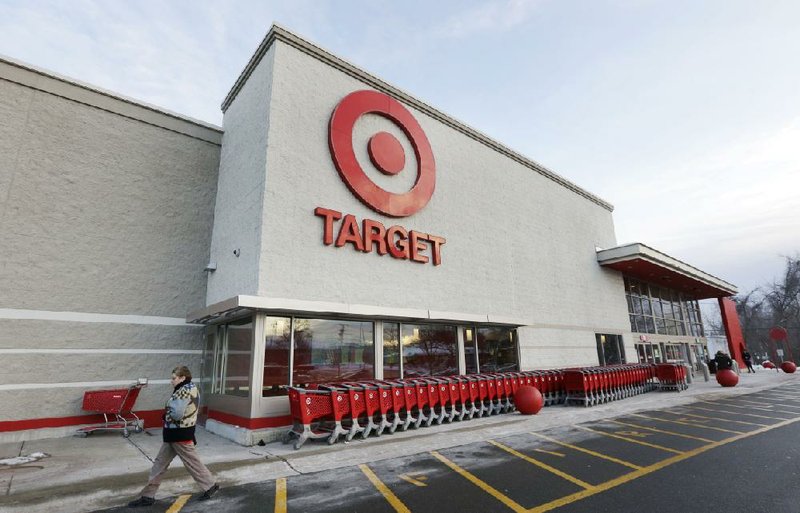Target Corp. shares jumped the most in almost five years Wednesday after fourth-quarter profit topped estimates and the retail chain said it was beginning to recover from a data breach that struck during the Christmas season.
Net income fell 46 percent to $520 million, or 81 cents a share, from $961 million, or $1.47 a share, a year earlier, the Minneapolis-based company said. However, analysts had projected 79cents a share, the average of 21 estimates compiled by Bloomberg. Sales declined 5.3 percent to $21.5 billion in the period, which ended Feb. 1, matching predictions.
The results helped allay the concerns of investors and analysts, who didn’t have high hopes for the company after the hacker intrusion tarnished its reputation, said Brian Yarbrough, an analyst at Edward Jones & Co. in St. Louis.
“Expectations were so low going in,” said Yarbrough. “This offered a ray of hope.”
Shares of Target, the second-largest U.S. discount retailer, rose $3.98, or 7 percent, to close Wednesday at $60.49 after rising as much as 8.3 percent, the biggest intraday gain since March 2009. The stock had declined 11 percent this year through Tuesday, compared with a 6.8 percent drop for Wal-Mart Stores Inc. and a 0.2 percent decrease for the Standard & Poor’s 500 index.
Chief Executive Officer Gregg Steinhafel has been working to keep customers going to stores after hackers stole credit- and debit card data and personal information from millions of shoppers in December. The company offered customers a weekend of 10 percent discounts that month and a year of free credit monitoring. Those efforts are beginning to pay off, Steinhafel said.
“We will continue to work tirelessly to win back the confidence of our guests and deliver irresistible merchandise and offers, and we are encouraged that sales trends have improved in recent weeks,” he said.
Target’s U.S. comparable store sales decreased 2.5 percent in the fourth quarter, in line with the company’s forecast. It attributed the decline to the hacker attack. The sales are expected to be almost flat in February - a faster recovery than Yarbrough had predicted. Target also indicated that it will make $1 billion to $2 billion in stock repurchases this year. Some analysts were concerned the company would eliminate buybacks altogether this year, he said.
The breach “is a serious situation, but one that we think Target should recover from,” Jason DeRise, an analyst at UBS AG in New York,said in a note before the results were released.
Sales in the U.S. were “meaningfully weaker” after the data theft was disclosed, the company said in January. Executives testified before Congress on the matter earlier this year.
Target, which opened its first stores in Canada about a year ago, said it will begin including those results in its adjusted earnings figures. On that basis, which excludes costs from the data breach, it expects profit of 60 cents to 75 cents a share this quarter. For the full year, Target expects earnings of $3.85 to $4.15.
The northern expansion has been a challenge for the retailer. Canadians, who for years had shopped at Target stores just over the border in the U.S., have been disappointed that prices in Canada are higher. Additionally, local competitors cut prices to make Target’s entry difficult, and Canadians aren’t shopping at the stores for basics such as food and medicines the way U.S. shoppers do.
The Canadian segment generated sales of $623 million last quarter and reduced earnings by 40 cents a share, the company said. The operation lost $941 million before interest and taxes in 2013, cutting the year’s profit by $1.13 a share.
This quarter the company expects sales of $400 million to $450 million in Canada - with a loss of $150 million to $170 million, excluding some items.
“It continues to bleed, but the loss is a lot less,” Yarbrough said.
Target spent $61 million responding to the data breach last quarter, including costs to investigate the attack and offer identity-theft services to customers. Insurance covered $44 million of the tab, leaving the company with an expense of $17 million in the period.
The expenses don’t include potential claims by payment-card networks for counterfeit fraud losses.
“At this time we are not able to reasonably estimate a range of possible losses on the payment card networks’ potential claims,” the company said.
Business, Pages 25 on 02/27/2014
